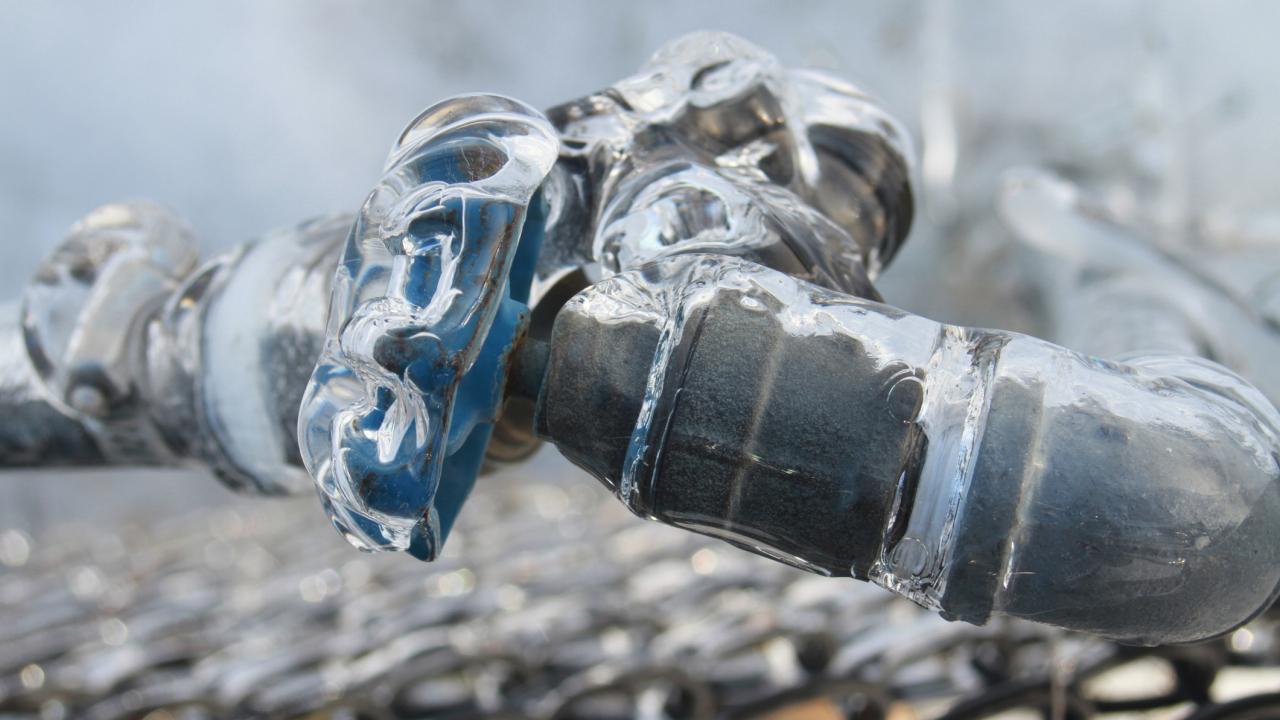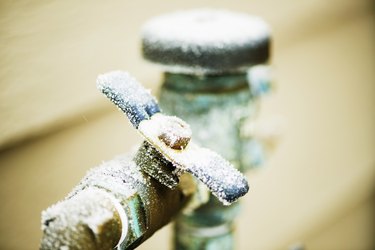Tips for Avoiding Frozen Pipes in Cold Weather: Professional Advice
Tips for Avoiding Frozen Pipes in Cold Weather: Professional Advice
Blog Article
They are making a number of good points about How To Avoid Freezing Pipes as a whole in this content below.

Cold weather can ruin your pipes, specifically by freezing pipelines. Right here's how to prevent it from taking place and what to do if it does.
Intro
As temperatures drop, the threat of icy pipes increases, possibly causing costly repairs and water damages. Understanding just how to avoid frozen pipelines is essential for homeowners in chilly climates.
Comprehending Frozen Pipelines
What triggers pipes to ice up?
Pipelines freeze when revealed to temperatures listed below 32 ° F (0 ° C) for extended durations. As water inside the pipes freezes, it increases, putting pressure on the pipe wall surfaces and possibly causing them to rupture.
Threats and damages
Frozen pipelines can bring about supply of water interruptions, residential or commercial property damages, and pricey repairs. Burst pipes can flood homes and trigger substantial architectural damages.
Indications of Frozen Piping
Recognizing icy pipelines early can stop them from breaking.
Just how to recognize icy pipes
Search for reduced water flow from faucets, uncommon smells or noises from pipes, and visible frost on revealed pipelines.
Prevention Tips
Insulating vulnerable pipelines
Cover pipes in insulation sleeves or use warmth tape to secure them from freezing temperatures. Concentrate on pipelines in unheated or exterior locations of the home.
Heating techniques
Maintain interior rooms effectively heated, specifically areas with pipes. Open closet doors to enable cozy air to circulate around pipelines under sinks.
Safeguarding Exterior Plumbing
Yard tubes and outside taps
Disconnect and drain yard hoses before winter months. Install frost-proof faucets or cover exterior faucets with insulated caps.
What to Do If Your Pipes Freeze
Immediate actions to take
If you presume icy pipelines, keep faucets open up to relieve pressure as the ice melts. Utilize a hairdryer or towels taken in warm water to thaw pipelines slowly.
Long-Term Solutions
Structural adjustments
Think about rerouting pipes away from exterior walls or unheated areas. Add extra insulation to attics, basements, and crawl spaces.
Upgrading insulation
Invest in high-quality insulation for pipes, attic rooms, and wall surfaces. Appropriate insulation assists maintain consistent temperatures and lowers the threat of frozen pipes.
Verdict
Protecting against icy pipes requires aggressive procedures and quick feedbacks. By recognizing the causes, indicators, and safety nets, property owners can shield their plumbing during winter.
Helpful Tips to Prevent Frozen Pipes this Winter
UNDERSTANDING THE BASICS: WHY PIPES FREEZE AND WHY IT’S A PROBLEM
Water freezing inside pipes is common during the winter months, but understanding why pipes freeze, and the potential problems it can cause is crucial in preventing such incidents. This section will delve into the basics of why pipes freeze and the associated problems that may arise.
THE SCIENCE BEHIND FROZEN PIPES
When water reaches freezing temperatures, it undergoes a physical transformation and solidifies into ice. This expansion of water as it freezes is the primary reason pipes can burst. As the water inside the pipe freezes, it expands, creating immense pressure on the walls. If the pressure becomes too great, the pipe can crack or rupture, leading to leaks and water damage.
FACTORS THAT CONTRIBUTE TO PIPE FREEZING
Low Temperatures: Extremely cold weather, especially below freezing, increases the risk of pipes freezing. Uninsulated or Poorly Insulated Pipes: Pipes located in unheated areas, such as basements, crawl spaces, or attics, are more prone to freezing. Insufficient insulation or lack of insulation altogether exacerbates the problem. Exterior Wall Exposure: Pipes running along exterior walls are susceptible to freezing as they encounter colder temperatures outside. Lack of Heating or Temperature Regulation: Inadequate heating or inconsistent temperature control in your home can contribute to frozen pipes. PROBLEMS CAUSED BY FROZEN PIPES
- Pipe Bursting: As mentioned earlier, the expansion of water as it freezes can cause pipes to burst, resulting in significant water damage.
- Water Damage: When pipes burst, it can lead to flooding and water damage to your property, including walls, ceilings, flooring, and personal belongings.
- Structural Damage: Prolonged exposure to water from burst pipes can compromise the structural integrity of your home, leading to costly repairs.
- Mold and Mildew Growth: Excess moisture from water damage can create a favorable environment for mold and mildew growth, posing health risks to occupants.
- Disrupted Water Supply: Frozen pipes can also result in a complete or partial loss of water supply until the issue is resolved.
WHY CERTAIN PIPES ARE MORE PRONE TO FREEZING
- Location: Pipes located in unheated or poorly insulated areas, such as basements, crawl spaces, attics, or exterior walls, are at higher risk of freezing.
- Exterior Pipes: Outdoor pipes, such as those used for irrigation or exposed plumbing, are particularly vulnerable to freezing as they are directly exposed to the elements.
- Supply Lines: Pipes that carry water from the main water supply into your home, including the main water line, are critical to protect as freezing in these lines can affect your entire plumbing system.
- Underground Pipes: Pipes buried underground, such as those connected to sprinkler systems or outdoor faucets, can be susceptible to freezing if not properly insulated.
https://busybusy.com/blog/helpful-tips-to-prevent-frozen-pipes-this-winter/

I stumbled upon that post on Prevent Frozen Pipes while looking around the internet. Remember to take the opportunity to promote this article if you appreciated it. Many thanks for your time. Come back soon.
Book Today! Report this page